
Yes, and Here’s Why Your Body Hates It!
Let’s get straight to the point: sugar is the polite guest that shows up at your house with flowers, only to steal your wallet and burn your couch when you turn your back. It’s charming, sweet, and oh-so-tempting, but inside your body? It’s toxic chaos. And while food companies would love you to think it’s “part of a balanced breakfast,” the reality is closer to: it’s part of a slow-motion self-destruction plan.
This isn’t fearmongering. This is science, history, and a bit of gallows humor rolled into one. So buckle up, because by the end of this, you’ll never look at that innocent can of soda or that “harmless” spoonful of sugar in your coffee the same way again.

The Sneaky Sweet Beginning
Sugar seems so innocent. It’s not like cocaine or cigarettes, right? Well, here’s the bad news: your brain doesn’t really know the difference. In fact, neuroscientists have shown that sugar lights up the same reward pathways as addictive drugs. That’s why you don’t see people overeating broccoli, but you do see people raiding the fridge at midnight for ice cream like it’s a matter of survival.
So before we dig into the health disasters sugar causes, let’s make something clear: this is not your fault. You’re wired to crave it. The food industry knows you’re wired to crave it. And they’ve been engineering products for decades to maximize that bliss point where you can’t stop at one cookie—you need the whole pack. They’ve basically turned us into lab rats that never get off the sugar wheel.
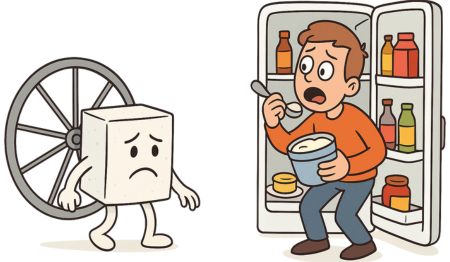
Short-Term Effects: Sugar’s Immediate Body Chaos
You might think sugar is only bad if you eat too much for years. Nope. Even one sugary hit sets off a mini-explosion in your body. Let’s break it down.
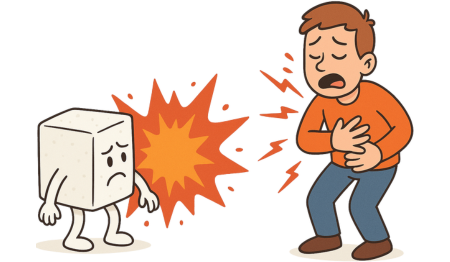
1. The Sugar High (a.k.a. Metabolic Rollercoaster)
Take a sip of soda. Within minutes, your blood sugar spikes. Your pancreas freaks out and pumps insulin like it’s trying to save the world. This feels great at first—energy, alertness, maybe even a little buzz. But it’s fake. Within an hour or two, that spike crashes down, leaving you tired, cranky, and hungrier than before. That’s the “sugar crash.” Congratulations, you just bought a ticket to the rollercoaster ride your body never asked for.
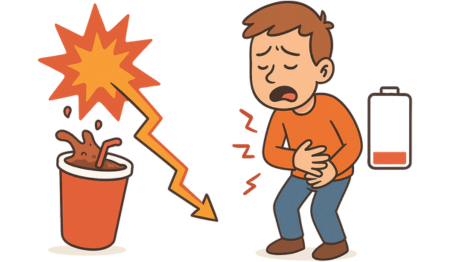
2. Inflammation
Even a small dose of added sugar triggers inflammatory responses. Inflammation isn’t just something that happens when you twist your ankle—it’s the silent fire linked to everything from acne to arthritis. One candy bar? Tiny fire. Daily soda habit? Congratulations, your whole body is a bonfire.
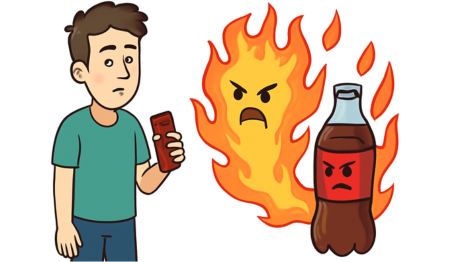
3. Your Brain on Sugar
Sugar floods your brain with dopamine, the feel-good chemical. Sounds nice, right? But here’s the problem: just like with drugs, your brain adapts. The more sugar you eat, the less dopamine it releases in response. So you need more to feel the same “happy hit.” That’s how cravings spiral into dependency. That cookie isn’t dessert; it’s a gateway drug.
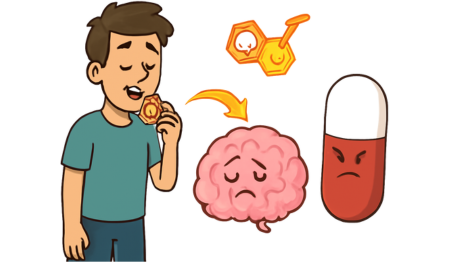
4. Immune Suppression
Did you know that after just 75 grams of sugar (roughly a can and a half of soda), your white blood cells are 40% less effective at killing germs? Translation: sugar literally makes you more likely to get sick. So the next time someone says, “treat yourself, you deserve it,” ask yourself if you also deserve the flu.
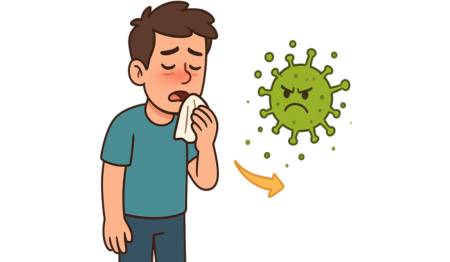
The Hangover You Didn’t See Coming
Ever eaten way too much cake at a birthday party and felt like you got hit by a truck the next morning? That’s sugar. Dehydration, headaches, brain fog—it’s basically a mini-hangover without the tequila.
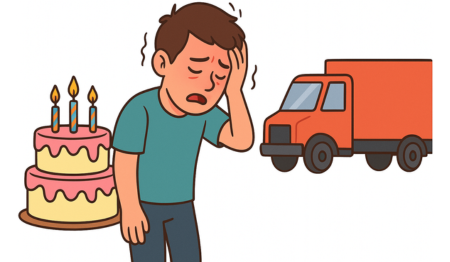
Long-Term Effects: Sugar the Slow Assassin
Okay, so the short-term is bad enough. But here’s where it gets dark: long-term sugar consumption doesn’t just make you fat or tired. It destroys you from the inside out. Let’s walk through the greatest hits of sugar’s long con.
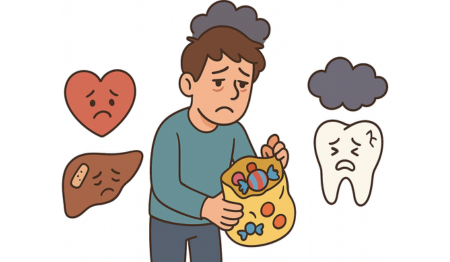
1. Obesity: The Obvious One
Sugar is calorie-dense and nutrient-poor. But the real issue? Liquid sugar—like sodas, energy drinks, or those “healthy” fruit juices—doesn’t trigger satiety signals. Your brain doesn’t register it as food. So you can down 300 calories in a soda and still feel hungry. Add this up over years, and suddenly we’re living in the fattest era in human history. Coincidence? Not really.
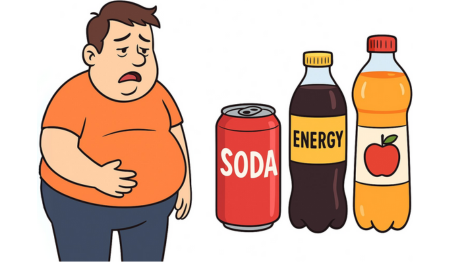
2. Type 2 Diabetes
Remember that insulin spike we talked about earlier? If you ride that rollercoaster every day, eventually your body stops listening to insulin. That’s called insulin resistance, and it’s the gateway to type 2 diabetes. Diabetes isn’t just “high blood sugar.” It’s nerve damage, kidney failure, blindness, amputations. Sugar is basically cutting the wires on your metabolic system.
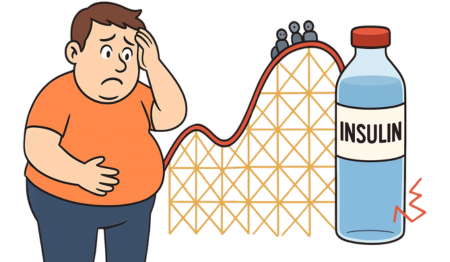
3. Heart Disease
For decades, fat got the blame for heart attacks. Turns out, sugar was lurking in the shadows. Studies now show that high sugar intake raises triglycerides, blood pressure, and LDL cholesterol—the unholy trinity of heart disease. Translation: sugar clogs your arteries faster than a plumbing disaster.
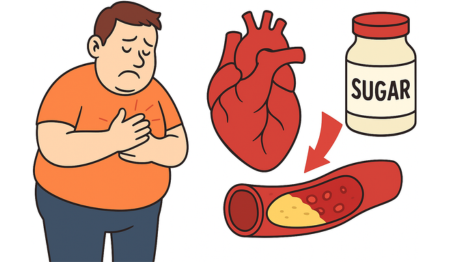
4. Liver Damage (a.k.a. Sugar’s Silent Kill)
Excess sugar—especially fructose—is processed in the liver, just like alcohol. Too much, and you develop non-alcoholic fatty liver disease (NAFLD). Yes, you can get cirrhosis from soda without ever touching a drop of whiskey. Cheers?
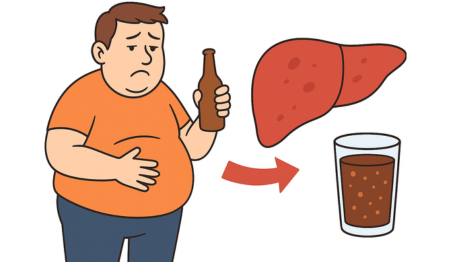
5. Cancer
Cancer cells thrive on glucose. Studies suggest high sugar diets feed tumor growth and increase risk of breast, colon, and pancreatic cancers. It’s not just that sugar makes you fat (which raises cancer risk); sugar itself is gasoline for malignant cells.

6. Dementia and Alzheimer’s
Doctors now call Alzheimer’s “type 3 diabetes.” Why? Because high sugar diets damage blood vessels and brain cells, impairing memory and cognition. Translation: sugar rots your brain.
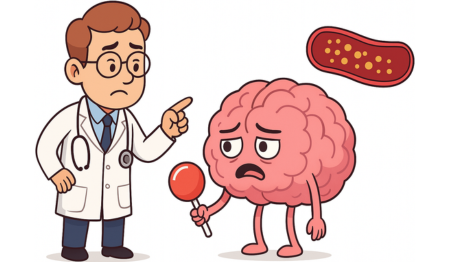
7. Tooth Decay
The OG problem. Sugar feeds bacteria in your mouth, which release acids that drill holes in your teeth. Cavities aren’t cute—they’re the baby version of all the other diseases sugar brings.

8. Aging: Sugar’s Wrinkle Factory
Sugar molecules bind to proteins in your skin in a process called glycation. This damages collagen and elastin, making your skin sag and wrinkle faster. That’s right—sugar literally ages you. Botox can’t fix your soda habit.

9. Mental Health
Sugar highs and crashes mess with your mood, fueling anxiety and depression. Long-term, chronic inflammation and dopamine dysregulation also play a role. Ever wonder why comfort food is never carrots? Because sugar hijacks your emotions as much as your body.
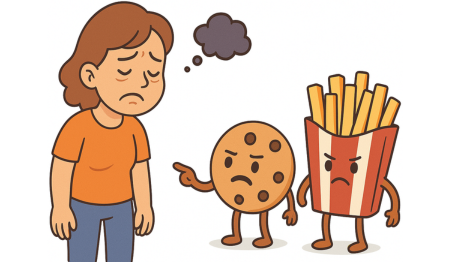
Why We Call It a Poison
The word “poison” feels dramatic, right? Like arsenic or cyanide. But think about it: poison is any substance that causes harm to your body. Sugar? Check. It may not kill you instantly, but it does so slowly, systematically, and predictably. Death by a thousand cupcakes.
Unlike other poisons, sugar is socially accepted. No one looks at you funny for downing a caramel frappuccino every morning. Imagine if people lined up daily for a syringe of morphine on the way to work—it would look absurd. But sugar? Totally normal. Normalized poison is still poison.
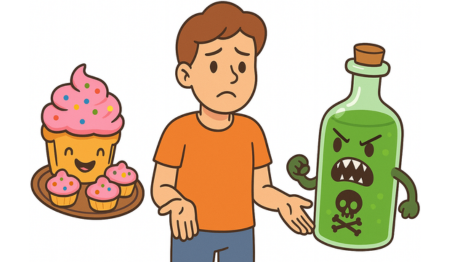
But Franko, Humans Have Always Eaten Sugar, Right?
Yes and no. For most of human history, sugar was rare. A seasonal treat—maybe some honey, maybe a piece of fruit. What we call “sugar” today—refined, concentrated, stripped of nutrients—barely existed until the last few centuries. And consumption has skyrocketed. The average American now downs over 20 teaspoons per day. That’s about 17 times more than your great-great-grandparents.
So, no, this isn’t natural. It’s industrial. And your body isn’t designed for it.
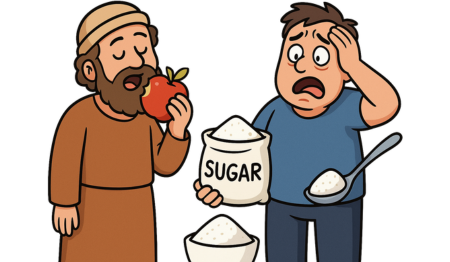
The Corporate Conspiracy (a.k.a. Why You’re Hooked)
Here’s the kicker: none of this is an accident. Food corporations have poured billions into making sugar addictive and omnipresent. They’ve lobbied governments, funded fake science to shift blame to fat, and designed food to maximize cravings. Ever wondered why ketchup, bread, and even salad dressing have sugar? Because they want you hooked.
Sugar subsidies? They’re not about keeping prices high or low for farmers—they’re about ensuring sugar remains dirt cheap for food manufacturers to pump into everything. They’re playing chess with your biology, and you’re the pawn.
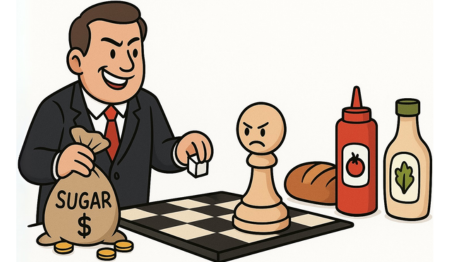
So What Do We Do?
You don’t need to become a monk who never looks at chocolate cake again. But you do need to understand the stakes. Sugar isn’t a harmless treat—it’s a drug, a toxin, a poison disguised as pleasure.
- Cut out liquid sugar first. Ditch sodas, juices, energy drinks. Your liver will thank you.
- Read labels. Sugar hides under 56 different names. If it ends in “-ose,” it’s probably trouble.
- Retrain your palate. The less sugar you eat, the less you crave. Your taste buds adjust.
Find real comfort food. Fruit, nuts, dark chocolate—stuff that doesn’t wreck your body.

Sugar is Sweet, but So is Life
Look, life is short. No one’s saying never touch a slice of birthday cake again. But let’s stop pretending sugar is harmless. It’s not. It’s poison dressed in frosting, a smiling assassin hiding in your latte.
You deserve better than being a lab rat for the sugar industry. You deserve energy, health, clear skin, strong teeth, a sharp brain, and maybe a few extra decades of life. Sugar wants to steal all that. So the question is: are yo

Sweet Beginnings: Sugar’s Not-So-Innocent Origin Story
Sugar didn’t start out as the villain of our story. In fact, it was once a luxury spice, traded like gold and used sparingly in medieval Europe. Back then, only the wealthy could afford it, sprinkling just a pinch on their roasted peacocks (yes, peacocks). But as colonialism and slavery expanded sugar production in the Caribbean, it transformed from rare treat to cheap, everyday staple. The Industrial Revolution sealed the deal: by the 19th century, sugar was everywhere—candies, baked goods, jams, and eventually the processed foods we live (and die) with today.
The sweet deal? More access to sugar meant more profits. The bitter truth? That access came at the cost of health, justice, and entire societies.
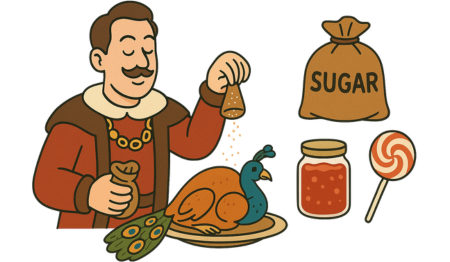
The Poisoning Question: What Do We Mean?
Let’s be clear: sugar itself is not cyanide. A spoonful won’t drop you dead on the kitchen floor. But here’s the catch—when something slowly erodes your health, rewires your brain, and fuels industries that thrive on disease, doesn’t that sound a little like poisoning?
Think of it as the slow drip of a toxin. Not immediate. Not obvious. But devastating all the same.
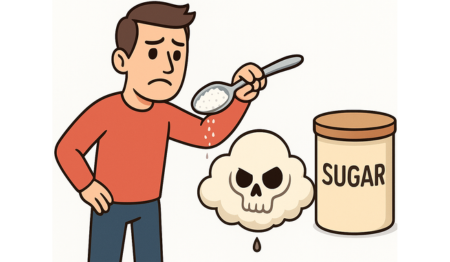
The Science of Sweet: What Sugar Does to Your Body
- Your Brain on Sugar: Every spoonful spikes dopamine like a mini drug hit. That “feel-good” rush is the same pathway cocaine taps into. Translation: sugar literally rewires your brain for addiction.
- Your Blood on Sugar: Constant glucose spikes force your pancreas to crank out insulin. Over time, cells stop listening—hello, insulin resistance. Step two? Type 2 diabetes.
- Your Heart on Sugar: Excess sugar raises triglycerides and blood pressure while lowering good cholesterol. Result: cardiovascular disease, the world’s number one killer.
- Your Liver on Sugar: Too much fructose turns your liver into a factory for fat. This is how people who don’t even drink end up with fatty liver disease.
So maybe sugar isn’t “just calories.” Maybe it’s closer to a slow-acting poison that comes gift-wrapped in pretty packaging.
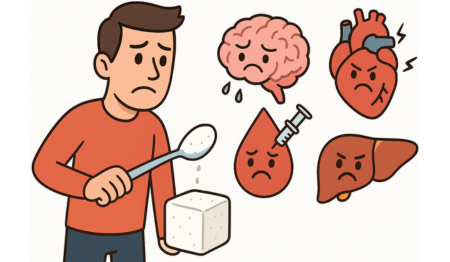
The Corporate Sweet Tooth: Who’s Really Benefiting?
Sugar isn’t just a taste—it’s a business strategy. Entire industries profit from your sweet cravings:
- The Food Industry: They lace cereals, breads, sauces, and even “health foods” with sugar because they know you’ll keep coming back. “Low fat”? Usually means “high sugar.”
- Big Pharma: Who benefits when millions develop diabetes, heart disease, and obesity? The companies selling insulin, blood pressure meds, and weight-loss drugs.
- Governments: Yes, even public institutions have long subsidized sugar and corn production. Cheap calories keep populations fed—and docile.
This isn’t a conspiracy theory. It’s economics 101.

Historical Case Files: Sugar’s Rap Sheet
- Slavery: The transatlantic slave trade was fueled by sugar plantations. Human suffering was literally baked into every sweet bite.
- Colonial Control: European powers used sugar profits to build empires. Colonies paid the health price so the motherlands could have dessert.
- 20th Century Cover-Up: In the 1960s, the sugar industry paid Harvard scientists to downplay sugar’s link to heart disease—and blame fat instead. That lie shaped public health policy for decades.
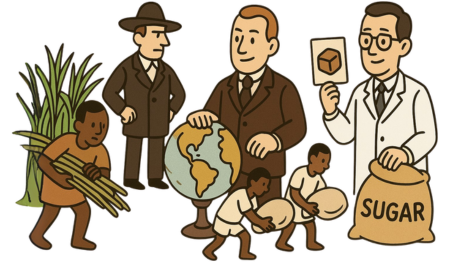
Modern-Day Evidence: The Poison Continues
- Obesity Epidemic: Global obesity rates have tripled since 1975. Not coincidentally, global sugar consumption skyrocketed during the same period.
- Childhood Health: Kids consume up to three times the recommended sugar intake daily. Childhood obesity and early-onset diabetes are now routine.
- Processed Food Domination: 74% of packaged foods in supermarkets contain added sugar. Good luck avoiding it.
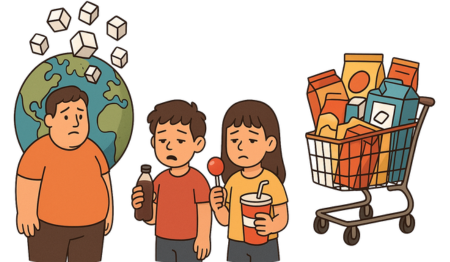
So, Have They Been Poisoning Us?
If you define poisoning as introducing a substance that harms health, manipulates biology, and sustains profit at your expense—then yes. Sugar has been weaponized against us. It’s not just dessert. It’s a tool of control, of commerce, of exploitation.
And the worst part? Most of us know it, but we keep eating anyway. That’s the genius of the poison: it tastes like joy.

What Can We Do About It?
- Read Labels: Sugar hides under dozens of names—cane juice, malt syrup, dextrose, high-fructose corn syrup. Spot the disguise.
- Reclaim Real Food: Whole foods, vegetables, fruits, grains. If your great-grandmother wouldn’t recognize it, think twice.
- Push Back: Support sugar taxes, school lunch reforms, and regulations on advertising to kids. If the industry profits from poisoning us, it’s time to change the rules.
- Detox Wisely: No need for extreme juice cleanses. Just cut back gradually and let your body adjust. Your taste buds will thank you.
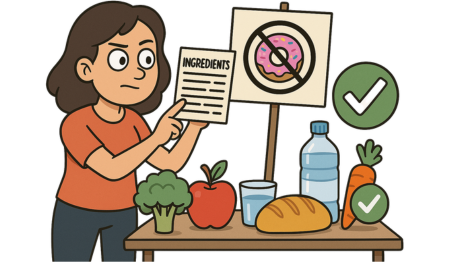
Final Bite: Bitter Truth, Sweet Lies
Sugar isn’t going away. But neither is our ability to question, resist, and demand better. The next time you unwrap a candy bar, ask yourself: is this sweetness worth the cost?
Because the truth is, sugar’s not just in our bodies. It’s in our history, our politics, our economies—and maybe even in our poisons.

